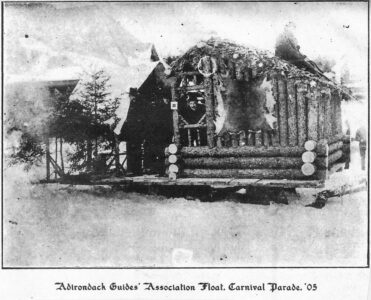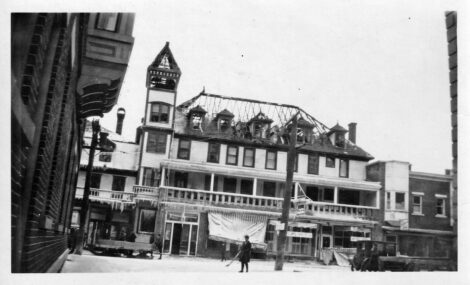Mo-jee Tooper Lahk!*
Last week, I survived a brief — but not brief enough — encounter with The Number One Gothamite: Benjamin Franklin Fairbanks XIV.
Though he claims he’s related to the original Ben Franklin of kite-flying and bifocal-inventing fame, he’s as directly related to Old Ben as I am to Jesus. No matter, it’s all part of his endless reinvention as someone and something far greater than he is. Then again, that’s par for the course for him and his ilk.
If you don’t know the type, you’re lucky, since they’re among the most arrogant SOBs to tread in shoe leather.
They live in the greatest city in the history of the world, they crow, never thinking for a second that’s what the citizens of ancient Carthage no doubt said (and I ask you, when was the last time you ran into a card-carrying ancient Carthaginian?).
“Everything you’d ever want is there,” he brags. “The best shows, museums, fashion houses, symphonies, gourmet dining, opera, shopping, universities. And the skyline at night makes Paris look like a cowtown.”
Seide Note: He’s never been to Paris. And on and on he goes, like Old Man River, as unstoppable as he is insufferable.
He’s a corporate lawyer with a huge salary, and while he has a window to throw it out of, he does NOT have a pot to pee in. Foolishly, he represented himself in his three divorces against ex-wives with lawyers who made Attila the Hun look like Mother Theresa. After they skinned, gutted and hung him out to dry, his alimony payments left him the equivalent of an indentured servant — except worse off: An indentured servant’s obligation was six years; he’ll be on the hook till they lower him into the cold, cold ground.
So what does all that mean? Just this: Aside from rocking world-class cases of self-absorption, city chauvinism and misogyny, none of the wonders he raves about are within his grasp. He can’t go to plays, museums, symphonies, ballet and ball games. He buys his clothes at the Salvation Army. And as for gourmet dining, it’s ramen and PB and J at home, and when on the town, Chinese takeout and Sabrett’s.
But in spite of him being beneath the bottom rung of the status ladder, he has the ego and compassion of Caligula. So his view of us townies, which he freely shares, is that we’re all a bunch of illiterate jeeters, with a beer in one hand, a fistful of lottery tickets in the other and branchless family trees.
Rebutting such nonsense is beneath my dignity. It’d be kinda like yelling at some grade-school kid for calling me a poophead. This is especially true in light of the unique advantages small towns have over cities. One of the best of them I first heard from my pal and fellow survivor of The Trenches of Academe, Kirk Peterson.
–
The real nitty gritty
–
Kirk was in college and his then-girlfriend, now his since-then wife, was in a play. The local paper had done a write-up of the play, extolling both its performance and his GF’s contribution to it. Bursting with pride, Kirk showed the write-up to his father. His father’s only reaction was to say, “I’ve never read a bad review in a hometown paper.”
While on the surface that seems to be sardonic, it’s really not. Yeah, sure, that’s exactly what hometown papers do, but then again, that’s exactly what they’re SUPPOSED to do. Maybe New York Times readers love seeing some play, playwright and actors skewered by some snarky critic with a pen in one hand and a shiv in the other, but that behavior doesn’t cut it in the Adirondack Park’s only daily newspaper. Nor should it.
If some hometown gal is crowned Miss Pine Cone, you can bet she’s gonna get as glowing a review as if she’d won Miss America. And more power both to her and the reporter who wrote it up. Maybe she’s not as attractive or talented as the woman who won Miss America, but guess what? Neither were the other 49 contestants. So MPC gets her day in the sun, a lifetime of sweet memories and a buttload of clippings and photos, cut out and given to her by friends and neighbors.
But sometimes those reviews, no matter how glowing and fulsome, are perfectly deserved. I should know because I wrote one. It was about a Mayor’s Cup football game between Saranac Lake and Tupper Lake, 15 years ago, maybe more.
Frankly, as un-American as it sounds, I don’t care about sports — especially professional ones. I will, however, watch local sports, less for the play itself than for supporting our boys and girls, God love ’em. I went to that Mayor’s Cup game for two reasons. One was, of course, to see how our age-old SL-TL rivalry played out; the other was because I was watching it with my dear friend Bob Griffin.
The weather was so bad, it might’ve been created by the Antichrist. It was cold, windy and rainy — perfect conditions to soak and chill you to the bones. As for playing conditions, before the end of the first quarter, the field had turned into slushy mush and the players were so covered in mud, the only way to tell the teams apart was which way they faced at the start of play.
Saranac Lake was the odds-on favorite. They were bigger, and if you judge by their record compared to Tupper’s, much better. The great sportswriter Damon Runyon, riffing on the biblical proverb, said, “The race is not always to the swift, nor the battle to the strong, but that’s the way to bet.” And of course he was right — on paper. But on the gridiron that day, it was a whole different story.
I don’t remember the first three quarters, but I will never forget the last one. Catch this: Tupper Lake, supposedly outmanned, outweighed and outgunned, was three points up with almost no time left. Saranac Lake got the ball, did an almost full-field drive, ending up inside Tupper’s 10, with first and goal. You could’ve cut the tension with a chainsaw.
Bob and I were standing behind SL’s goalpost, woofin’ down digitalis and Tums. My feet and hands had lost all feeling before halftime, rain had soaked my pants and run down my neck and none of that made a bit of difference as I stared at the end of the field, riveted to the action.
SL wisely decided not to try a pass. So it was the Woody Hayes motto, slightly modified — three yards and a pile of mud.
With first down and maybe eight yards to go, a touchdown seemed like a sure thing.
But three downs later, it was fourth and goal from the 3-yard line. That’s right — against all odds and the smart money, Tupper’s two-pint titans gave better than they got, and held their line.
Finally, The Moment of Truth. It’s a phrase that came from bullfighting and while our Mayor’s Cup lacked the lethality of a bullfight, it did NOT lack the drama.
The signals were called, the ball was snapped, the lines collided. Only moments later (though it seemed much longer), the ball was called dead. When the heap of players untangled themselves and the refs ran out, there was the ball — still on the 3-yard line, maybe having gained an inch or two. And mere seconds after that, the final whistle blew, the game was over. Pandemonium reigned from the Tupper mob, and till next year, the Mayor’s Cup was theirs.
Many objective measurements of both the athletes and teams can be used to predict success in a game. Height, weight, speed, won-loss records, passes completed, yards gained rushing, interceptions, field goal conversions and others.
However, one thing that can’t be measured, and perhaps the most important for success on playing fields (and maybe everywhere else) is heart.
But even though it can’t be measured, you sure know it when you see it.
*That’s the Quebecois pronunciation. It’s spelled Maudit Tupper Lake. If you don’t know what it means, you either have no friends in Tupper or the wrong friends.



